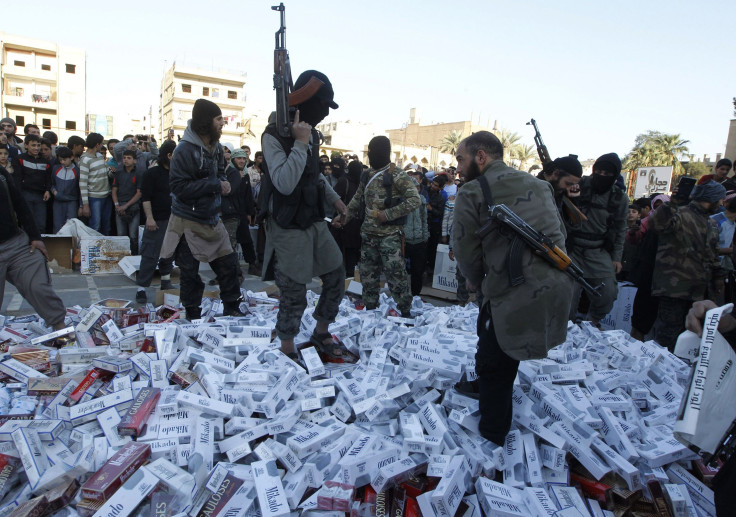How Saudi Arabian Oil Could Hurt ISIS Finances In Iraq And Syria

At the beginning of U.S. military intervention against the Islamic State, President Obama said the goal of the military campaign was to “degrade and ultimately destroy” the group. Part of that strategy, he said, would include hindering the ability of the Sunni militant group, also known as ISIS, to smuggle oil. Turkey has vowed to step up efforts to secure its border to stop militants from selling the oil on its black market, but the only country that can really hit the Islamic State where it hurts financially is Saudi Arabia, one of the world's biggest oil producers.
A report published this week by Bank of America-Merrill Lynch said Saudi Arabia could be pushing for crude prices to fall to $85 a barrel in an attempt to stop ISIS from making more money and expanding its control in the Middle East.
At one point this summer, oil analysts said, ISIS was making, on average, $3 million a day in oil sales. Since then, though, that number has decreased, partly because the group is producing less oil after facilities were hit by coalition airstrikes. The other reason, though, has to do with the price of oil, which Saudi Arabia can influence by altering its production levels. The drop in price makes ISIS oil less valuable.
Oil prices fell to a 4-year low Thursday morning. The International Energy Agency also cut its global oil demand growth forecast for 2015. Following the dip, Saudi Arabia, one of the world's leading exporters of oil, refused to limit its oil production, which would have helped bring prices back to normal levels. It could handle the dip in prices, officials there said.
But by doing that, Saudi Arabia is hurting its allies, including the U.S., not just ISIS. According to some analysts, Saudi Arabia is essentially testing the ability of the U.S. shale oil industry , a major rival, to withstand the price drop. The bank's report said a decline in crude oil prices "would likely be a major blow to U.S. shale oil players and lead to a significant slowdown in investment."
Others said the U.S. and Saudi Arabia are working together to keep oil prices low, because that would hurt common adversaries such as Iran and Russia.
In the past, when oil prices have fallen, Saudi Arabia has cut down on production so oil supply comes down and prices tend to rise. But that did not happen this time. “Saudi production has not bulged,” the Bank of America-Merrill Lynch analysts said in the report.
The drop in oil prices is also affecting a key opponent of ISIS -- the Kurds. Officials in Iraqi Kurdistan have been trying to sell oil pumped from the north of Iraq through Turkey to the port of Ceyhan, but have so far been unsuccessful. Hundreds of millions of dollars worth of oil from Iraqi Kurdistan is sitting in tankers in the Mediterranean and off the coast of Texas, after the central Iraqi government sued to stop the sale, claiming Kurdistan did not have a right to those revenues.
© Copyright IBTimes 2024. All rights reserved.











